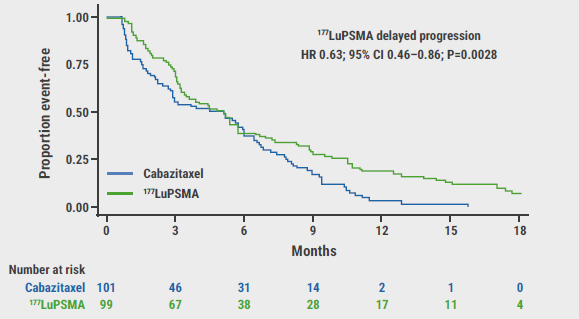https://doi.org/10.55788/d3ea8c76
AKI and subsequent kidney failure are major adverse events that can happen following cardiac surgery. RMC-035 is a biologic that imitates alpha-1-microglobulin activity.
AKITA (NCT05126303) was a multicentre, randomised, placebo-controlled phase 2 study [1]. Its primary endpoint was reduced AKI development with RMC-035 within 72 hours following coronary bypass surgery and/or valve surgery, and/or aortic repair. Secondary endpoints included change in eGFR based on serum creatinine and MAKE. MAKE was defined as death, dialysis post-surgery, or ≥25% eGFR from baseline on days 30 or 90. Participants were treated with 5 intravenous treatments of RMC-035 (n=89) or placebo (n=89). Patients with a starting eGFR >60 mL/min/1.73 m2 were started at a dose of 1.3 mg/kg. Patients with eGFR between 30–60 mL/min/1.73 m2 were started at 0.65 mg/kg.
Similar percentages of patients developed AKI within 72 hours of surgery in the RMC-035-treated and the placebo arm, so the primary endpoint was not met (50.6% vs 39.8%; RR 1.30; 90% CI 0.99–1.71; P=0.12). Secondary endpoints were met 90 days following the intervention. The mixed model for repeated measures (MMRM) eGFR was 4.3 mL/min greater in the RMC-035 group compared with placebo (P=0.063). The percentage of MAKE was reduced in the RMC-035 group at 6.7%, compared with 15.9% of the participants experiencing severe events in the placebo arm (RR 0.41; 90% CI 0.19–0.88; P=0.047). Treatment-emergent adverse events (TEAEs) occurred at comparable rates in RMC-035 and placebo groups (85.4% vs 75.0%). More infusion-related reactions (IRR) occurred in the group receiving the drug.
Thus, in a small trial, RMC-035 demonstrated to be a well-tolerated drug for reducing MAKE following cardiac surgery. It was not effective for preventing AKIs immediately following surgery.
- Zarbock A, et al. Results of a Randomized Placebo-Controlled Double-Blind Adaptive Phase 2 Study (AKITA) Evaluating RMC-035 for the Prevention of AKI in Patients Undergoing Cardiac Surgery. TH-PO1160, ASN Kidney Week 2023, 2–5 November, Philadelphia, PA, USA.
Copyright ©️2023 Medicom Medical Publishers
Posted on
Previous Article
« Obinutuzumab attenuates kidney decline in lupus nephritis Next Article
A systems approach to kidney transplantation disappoints »
« Obinutuzumab attenuates kidney decline in lupus nephritis Next Article
A systems approach to kidney transplantation disappoints »
Table of Contents: ASN 2023
Featured articles
Patient care technicians improve haemodialysis patient outcomes
Sparsentan outperforms irbesartan for treatment of IgAN
Chronic Kidney Disease
Aldosterone synthase inhibition reduces albuminuria in CKD
Low doses of zibotentan with dapagliflozin improve albuminuria in patients with CKD
Spironolactone failed to reduce major adverse cardiac effects in patients with CKD on haemodialysis
Efficacy of bardoxolone methyl for DKD, without increased cardiac risk
Renal Replacement Therapy
New approaches to successful vascular access
Patient care technicians improve haemodialysis patient outcomes
Donor stem cells may reduce lifelong immunosuppressant use following transplant surgery
A systems approach to kidney transplantation disappoints
Glomerular Disease
Obinutuzumab attenuates kidney decline in lupus nephritis
Clinical benefits of sparsentan for patients with FSGS
Sparsentan outperforms irbesartan for treatment of IgAN
Rare or Genetic Kidney Disease
Small molecule PGE1 shows promise for nephronophthisis treatment in vitro and in vivo
© 2024 Medicom Medical Publishers. All rights reserved. Terms and Conditions | Privacy Policy


